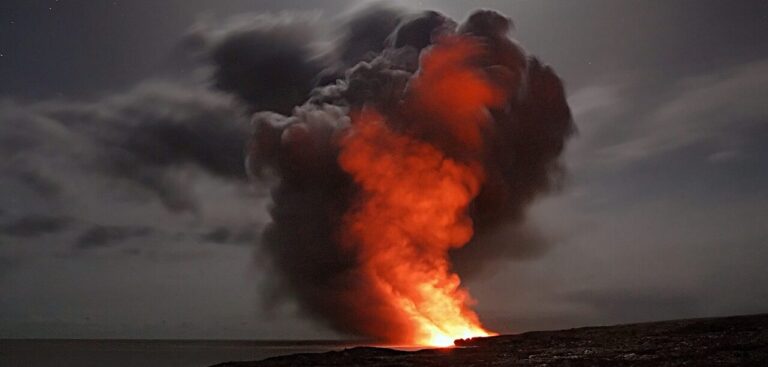Simulated volcanic eruptions may be affecting the ability of models to predict near-term climate, according to research led by the US National Center for Atmospheric Research (NCAR).
The new study found that the way volcanic eruptions are represented in climate models may be masking the models’ ability to accurately predict variations in sea surface temperatures in the tropical Pacific that unfold over multiple years to a decade.
These decadal variations in sea surface temperatures in the tropical Pacific are linked to climate impacts across the globe, including variations in precipitation and severe weather. Accurate predictions, therefore, could provide community leaders, farmers, water managers and others with critical climate information that allows them to plan years in advance.
Xian Wu, who led the study as a postdoctoral researcher at NCAR, said, “Near-term climate prediction on annual to decadal timescales is a rapidly growing and important field in the climate community because it bridges the gap between existing seasonal forecasts and centennial climate projections. When we rely on models to make these predictions, it’s important to carefully consider the model’s fidelity. In this case, we found that model errors in simulating the response to volcanic eruptions degraded our prediction skill.”
For the study, Wu and her colleagues relied on two parallel collections of climate simulations from the Decadal Prediction Large Ensemble, a data set produced using the NCAR-based Community Earth System Model. These simulations were run as hindcasts and cover the years from 1954-2015, allowing scientists to compare the simulations with what really occurred and evaluate their skill at predicting the future.
One collection of simulations included the three major volcanic eruptions that occurred during the study period: Agung (1963), El Chichón (1982) and Pinatubo (1991). The other collection did not.
Because it is well established that large volcanic eruptions can have significant, long-term cooling effects on the climate, Wu and her colleagues expected that the collection of simulations that included the volcanic eruptions would produce more accurate multiyear and decadal climate predictions. Instead, they found that the inclusion of the eruptions degraded the model’s predictive capabilities, at least in the tropical Pacific, an area that is especially important because of the connections between sea surface temperatures and near-term climate events.
For example, the simulations that included the volcanoes predicted a subsequent cooling of the sea surface temperatures in the tropical Pacific after the eruptions. In reality, that region of the ocean warmed, a change that was well predicted by the simulations that did not include the volcanic eruptions.
These findings highlight the difficulty of accurately representing the complex climate impacts that follow a volcanic eruption in a model, a task made more challenging because researchers only have a few real-life examples in the observational record. Scientists know that volcanoes can loft sulfur gasses high into the stratosphere where they can transform into sunlight-reflecting aerosols. But how the resulting cooling ultimately affects the entire Earth system, including sea surface temperatures, is not well understood.
“We just don’t have enough observations,” Wu said. “And our methods to observe what is happening in the stratosphere have only been available since the satellite era, which means we only have Chichón and Pinatubo.”
Still, Wu is hopeful that representations of volcanic eruptions and their impacts in models can be improved over time and that, ultimately, this work will improve our ability to forecast important climate events years in advance.
“Decadal variability in the tropical Pacific is an important source of predictability worldwide,” Wu said. “It affects climate over the surrounding continents, as well as marine ecosystems. Better predictions will provide important information for stakeholders.”
The complete study was published in the journal Science Advances.



